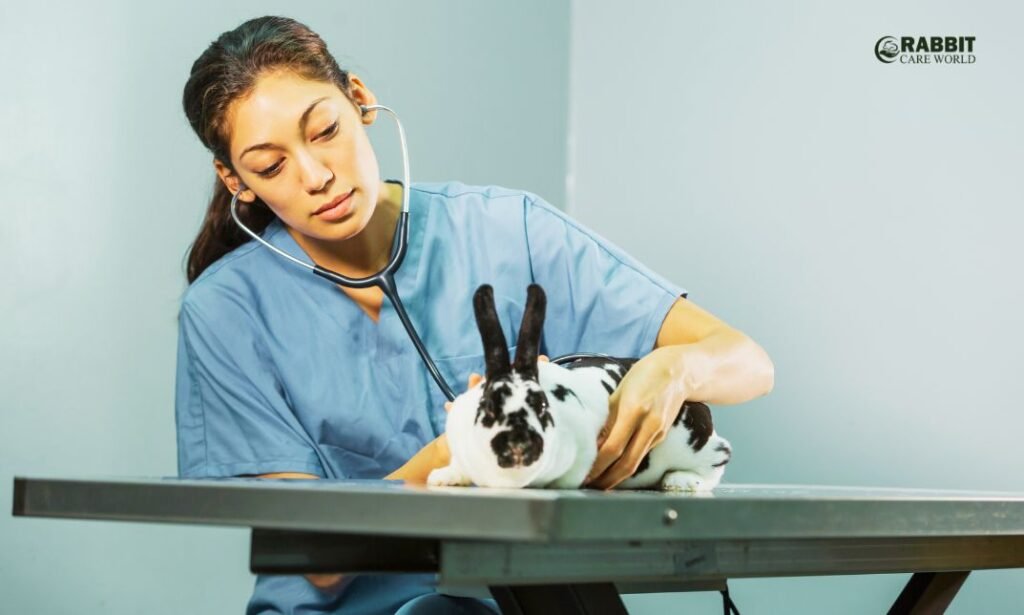Wondering do rabbits need vaccines? Yes, rabbits do need vaccines. Vaccines protect rabbits from serious diseases.
They help ensure your pet stays healthy and happy. Rabbits are popular pets known for their gentle nature. Like other pets, they need proper care to stay healthy. Vaccines play a crucial role in preventing diseases. This keeps your rabbit safe from common illnesses.
Understanding which vaccines your rabbit needs can be confusing. This blog post will guide you through the essential vaccines for rabbits. It will also explain why they are important. Whether you’re a new rabbit owner or have had one for years, this information is vital. Keep reading to learn how to protect your furry friend.
Table of Contents
ToggleImportance Of Vaccinations
Vaccinations are crucial for rabbits to protect them from deadly diseases like myxomatosis and rabbit hemorrhagic disease. Regular vaccinations ensure your pet’s health and longevity.
Vaccinations play a key role in keeping your rabbit healthy. They help prevent serious diseases. Rabbits, like other pets, need protection. Vaccines offer this protection. They help boost your rabbit’s immune system.
Protecting Your Rabbit’s Health
Vaccines protect your rabbit from harmful illnesses. Healthy rabbits can live longer. They are less likely to get sick. A vaccinated rabbit is a happy rabbit. Vaccines also reduce vet visits. This saves you time and money.
Preventing Common Diseases
Rabbits face many health risks. Common diseases include Myxomatosis and Rabbit Hemorrhagic Disease (RHD). These diseases can be fatal. Vaccines help prevent these. They strengthen your rabbit’s defenses. Vaccinated rabbits have a better chance of staying healthy.

Credit: www.facebook.com
Common Rabbit Diseases
Rabbits are wonderful pets but they are prone to several diseases. Understanding these diseases can help you protect your furry friend. Here are some common rabbit diseases that you should be aware of.
Myxomatosis
Myxomatosis is a viral disease in rabbits. It spreads through insects like fleas and mosquitoes. This disease can be deadly if not treated. Signs of myxomatosis include swelling around the eyes, nose, and genitals. In severe cases, it can cause blindness or respiratory issues. There is a vaccine available to protect your rabbit from this virus.
Rabbit Viral Hemorrhagic Disease
Rabbit Viral Hemorrhagic Disease (RVHD) is another serious illness. This disease spreads through contact with infected rabbits or their droppings. It can also spread through contaminated food or bedding. Signs of RVHD include fever, lethargy, and loss of appetite. In severe cases, it can cause internal bleeding and death. Vaccinating your rabbit can help prevent this disease.
Vaccination Schedule
Vaccination schedules are crucial for ensuring proper care for your rabbit. Understanding the right time to start and maintain vaccinations can prevent serious illnesses. Rabbits, like other pets, need regular vaccines to protect against common diseases.
When To Start
Begin vaccinating your rabbit at around five weeks old. At this age, their immune system is ready for the first vaccine. Consult your vet for the best timing. Early vaccination helps build a strong defense against diseases.
Booster Shots
Rabbits need booster shots to maintain immunity. The first booster is usually given one month after the initial vaccine. Then, annual boosters ensure ongoing protection. Regular vet visits will keep your rabbit’s vaccines up-to-date.

Credit: www.everypaw.com
Types Of Vaccines
Vaccinations play a crucial role in maintaining your rabbit’s health. Understanding the types of vaccines available helps in making informed decisions. Generally, rabbit vaccines fall into two categories: core vaccines and non-core vaccines. Let’s delve into each category to understand their importance
Core Vaccines
Core vaccines are essential for all rabbits. These vaccines protect against common and severe diseases. They are highly recommended by veterinarians. Two primary core vaccines are:
- Myxomatosis Vaccine: Protects against Myxomatosis, a deadly viral disease spread by fleas and mosquitoes.
- Rabbit Hemorrhagic Disease Virus (RHDV) Vaccine: Shields your pet from Rabbit Hemorrhagic Disease, a fatal condition causing internal bleeding.
These vaccines are vital for your rabbit’s survival. They safeguard against life-threatening illnesses.
Non-core Vaccines
Non-core vaccines are not mandatory for all rabbits. They depend on specific risk factors. These include environment, lifestyle, and exposure to other animals. Some examples of non-core vaccines are:
- Pneumococcal Vaccine: Provides protection against respiratory infections caused by bacteria.
- Pasteurella Vaccine: Helps prevent Pasteurellosis, a bacterial infection common in rabbits.
Consult your vet to determine if these vaccines are necessary. They may suggest them based on your rabbit’s unique needs.
| Vaccine Type | Purpose | Recommendation |
|---|---|---|
| Myxomatosis Vaccine | Protects against Myxomatosis | Core |
| RHDV Vaccine | Prevents Rabbit Hemorrhagic Disease | Core |
| Pneumococcal Vaccine | Prevents respiratory infections | Non-Core |
| Pasteurella Vaccine | Prevents Pasteurellosis | Non-Core |
Administering Vaccines
Administering vaccines to rabbits is crucial for their health and wellbeing. Vaccines help protect your furry friend from serious diseases. Ensuring your rabbit gets proper vaccinations can be done through veterinarian visits or at-home vaccination.
Veterinarian Visits
Regular visits to the veterinarian are essential. A vet can provide professional care and advice. They will check your rabbit’s overall health before administering vaccines.
Here are some key points during a vet visit:
- Health check-up: The vet examines your rabbit for any signs of illness.
- Vaccine schedule: The vet will suggest a vaccination schedule based on age and health.
- Advice: You will receive guidance on post-vaccination care.
Veterinarian visits ensure that vaccines are given safely and correctly. This helps in preventing any adverse reactions.
At-home Vaccination
At-home vaccination is an option for some rabbit owners. It requires a bit more responsibility and knowledge. You need to be comfortable handling your rabbit and administering the vaccine.
Steps to follow for at-home vaccination:
- Purchase vaccines: Buy vaccines from a reputable source.
- Preparation: Read the instructions carefully. Gather all necessary supplies.
- Administer vaccine: Follow the instructions to give the vaccine.
- Observe: Monitor your rabbit for any signs of discomfort or reaction.
At-home vaccination can be convenient. But, it’s important to consult your vet before proceeding. They can provide guidance and tips to ensure the safety of your rabbit.
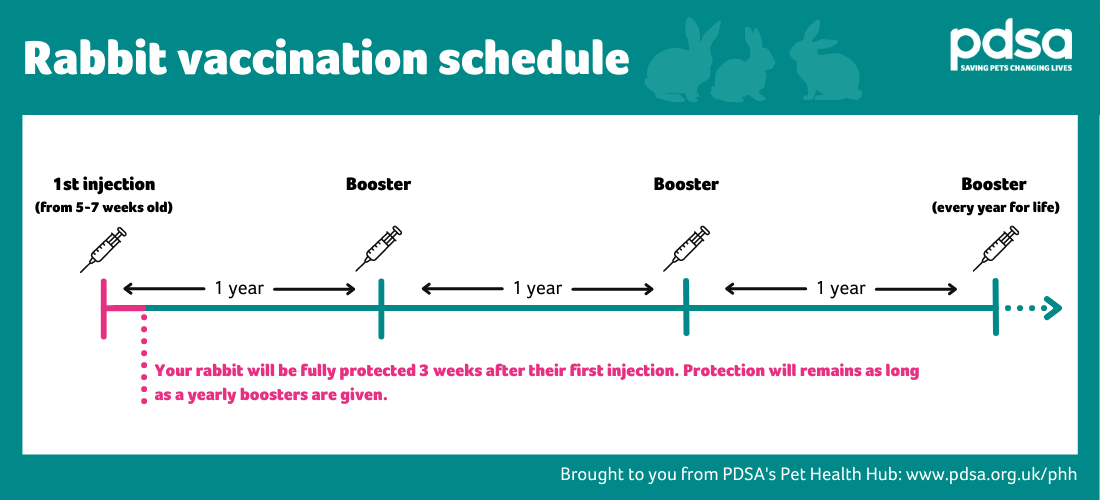
Credit: www.pdsa.org.uk
Possible Side Effects
Vaccinating rabbits is important for their health. But, like all vaccines, rabbit vaccines can have side effects. Knowing these can help you prepare and care for your pet better. Let’s explore the possible side effects of rabbit vaccines.
Mild Reactions
Mild reactions are common after vaccination. Your rabbit may feel a bit tired. They might lose their appetite for a day. Some rabbits may have a slight fever. It’s also normal to see a small lump at the injection site. This lump usually goes away on its own. If the lump does not go away, contact your vet. Most mild reactions are temporary and harmless.
Severe Reactions
Severe reactions are rare but can happen. Watch for signs of an allergic reaction. These include swelling, difficulty breathing, and severe lethargy. If your rabbit shows any of these signs, go to the vet immediately. Other severe reactions might be seizures or collapse. These require urgent care. Always monitor your rabbit closely after a vaccine. Early detection of severe reactions can save lives.
Post-vaccination Care
Post-Vaccination Care is crucial for your rabbit’s health. After vaccination, your rabbit needs close attention to ensure it recovers well. This section will guide you through the steps of post-vaccination care.
Monitoring Your Rabbit
Keep an eye on your rabbit for the first 24-48 hours. Look for any changes in behavior or physical condition. Rabbits may feel tired or less active after vaccination. This is normal, but should not last more than a day or two.
Check your rabbit’s eating and drinking habits. Ensure it is eating and drinking normally. A decrease in appetite can indicate a problem. Monitor the injection site for any signs of swelling or redness.
Create a checklist to monitor your rabbit’s health post-vaccination:
- Watch for unusual behavior
- Monitor eating and drinking
- Check the injection site
- Note any changes in energy levels
When To Contact A Vet
Knowing when to contact a vet is vital. If your rabbit shows signs of distress, seek help. Symptoms to watch for include:
| Symptom | Action |
|---|---|
| Continuous lethargy | Contact your vet |
| Loss of appetite | Seek veterinary advice |
| Swelling or redness at injection site | Consult your vet |
| Difficulty breathing | Emergency vet visit |
Always better to be cautious. Your vet can provide the best advice. Remember, prompt action can prevent serious issues.
Cost Of Vaccinations
Vaccinating your rabbit is essential for their health. But what does it cost? Understanding the cost helps you plan better. Let’s break it down into simple terms.
Average Prices
The cost of rabbit vaccinations can vary. On average, vaccinations cost between $20 and $50 per shot. Some vaccines are more expensive. It depends on your location and the vet.
Some rabbits need multiple vaccines. This can add up. Knowing the prices helps you budget. It keeps your rabbit healthy without surprises.
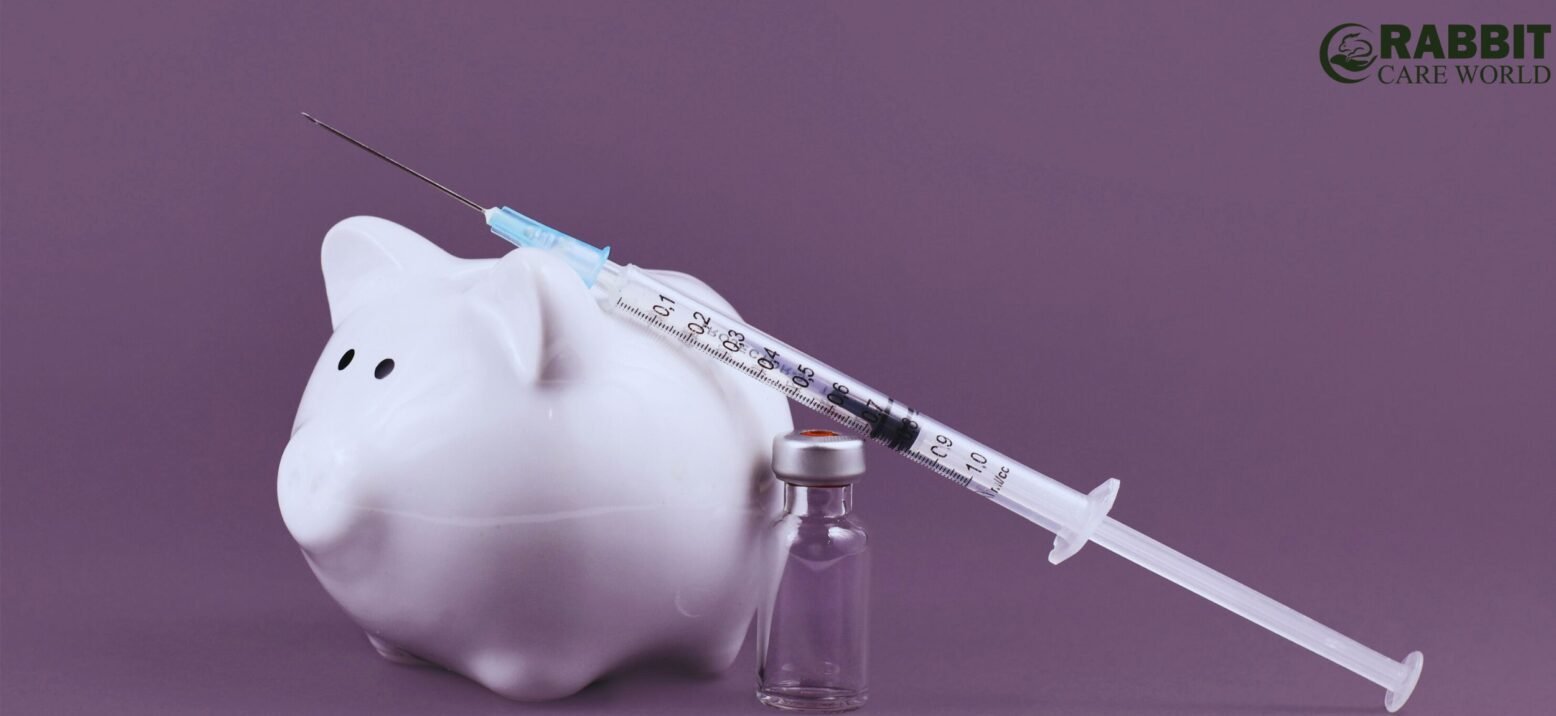
Budgeting For Pet Care
Pet care or rabbit care costs more than just food and toys. Vaccinations are part of the budget. Plan ahead to avoid unexpected costs. Set aside money each month. This way, you are prepared for vet visits.
Include vaccines in your annual budget. It helps to keep track of all expenses. This makes it easier to manage your finances. Your rabbit gets the care they need.
Consider pet insurance. Some plans cover vaccinations. It can save money in the long run. Research and choose the best plan for your rabbit.
Finding A Veterinarian
Ensuring your rabbit’s health is crucial, and finding a veterinarian is a key step. Not all vets specialize in rabbit care, so finding the right one is essential. This section will help you choose the best vet and know what questions to ask.
Choosing The Right Vet
Not all veterinarians are experienced with rabbits. Look for a vet who specializes in small animals or exotic pets. Rabbit-savvy vets understand the specific needs and health issues of rabbits.
Ask for recommendations from other rabbit owners or local animal shelters. Online reviews can also help you find a well-regarded vet in your area. A vet with positive feedback and experience with rabbits is a good choice.
Questions To Ask
Before deciding on a veterinarian, prepare a list of questions. This will help you gauge their expertise and comfort level with rabbits.
- Experience: How many rabbits do you treat regularly?
- Vaccines: What vaccines do you recommend for rabbits?
- Emergencies: Do you offer emergency services or have a referral system?
- Procedures: How do you handle common rabbit surgeries like spaying or neutering?
- Health Checks: What routine health checks do you perform for rabbits?
These questions will help you find a competent vet for your rabbit. Ensure they are comfortable answering and addressing all your concerns.
Traveling With Vaccinated Rabbits
Traveling with vaccinated rabbits can be a smooth experience. Proper preparation is key. Vaccinated rabbits are less likely to get sick during travel. This makes the journey safer for them and you. Let’s explore what you need to know.
Documentation Needed
Before traveling, gather all necessary documents. Ensure you have proof of vaccination. This document should be from your vet. It must show the vaccination date and type. Keep this document handy during travel.
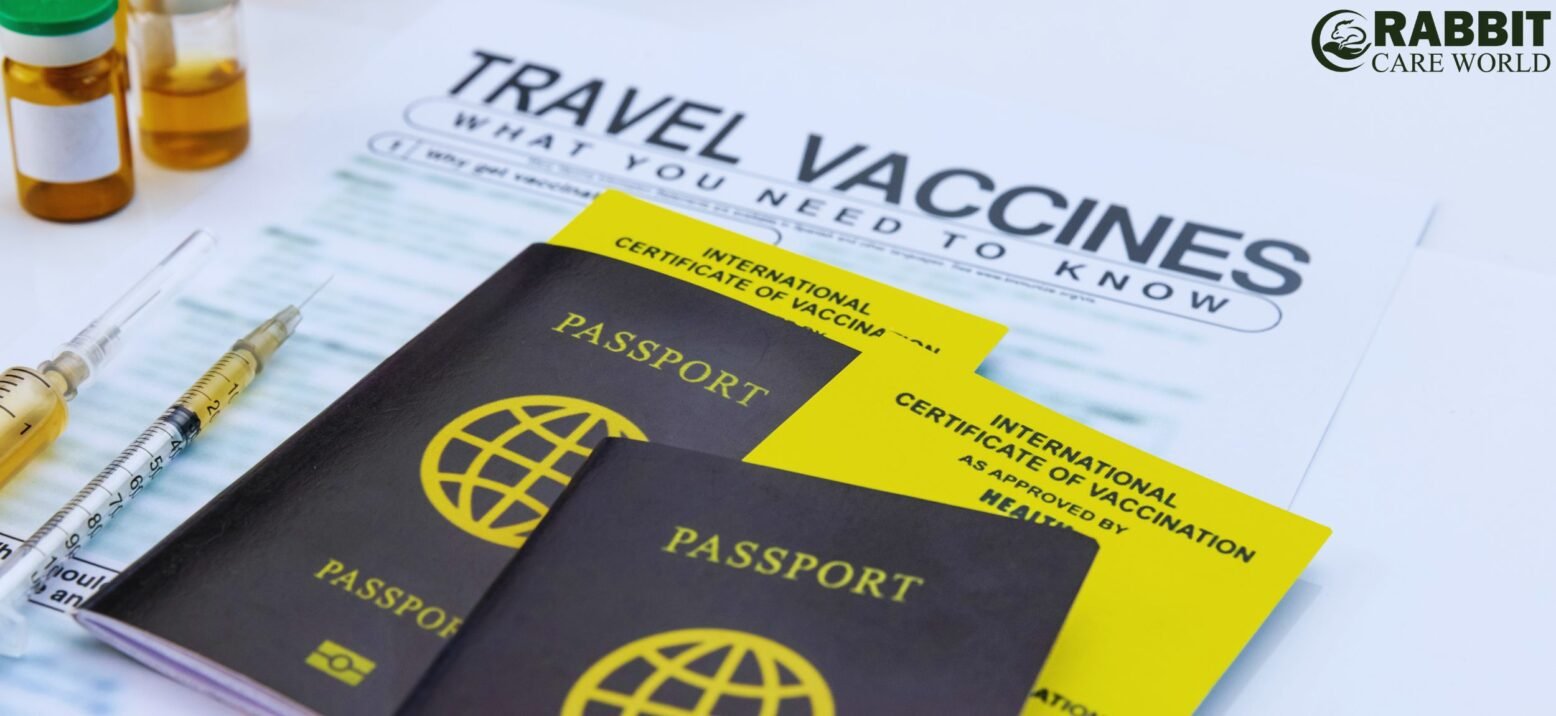
Some places might need a health certificate. Check the requirements of your destination. The certificate should state your rabbit is healthy. Your vet can provide this after a check-up.
Travel Tips
Make your rabbit comfortable during travel. Use a secure carrier. Ensure it has proper ventilation. Line it with soft bedding. This helps your rabbit feel safe.
Pack essentials like food and water. Take a few toys too. These can keep your rabbit entertained. Regular breaks are important. Let your rabbit stretch and relax. Avoid loud noises and sudden movements. These can stress your rabbit.
Monitor your rabbit’s health during the trip. Look for signs of stress or illness. If something seems wrong, contact a vet. Plan your route and stops ahead of time. This ensures you have access to pet-friendly places.
Myths About Rabbit Vaccinations
There are many misconceptions about rabbit vaccinations. These myths can confuse pet owners. Understanding the truth helps ensure your rabbit’s health. Let’s debunk some common myths and share facts about vaccines.
Debunking Common Myths
Some believe rabbits do not need vaccines. This is not true. Rabbits can get diseases just like other pets. Vaccines help protect them.
Another myth is that vaccines are too strong for rabbits. People think they might harm them. Vaccines are tested and safe for rabbits. They help prevent serious illnesses.
Some say indoor rabbits do not need vaccines. This is false. Indoor rabbits can still be exposed to diseases. Vaccines offer important protection.
Facts About Vaccines
Vaccines help prevent deadly diseases. They are important for rabbit health. Vaccinated rabbits have a better chance to stay healthy.
Vaccines are usually given by a vet. The vet will know which vaccines your rabbit needs. This depends on your location and rabbit’s health.
Regular check-ups help keep your rabbit safe. Discuss vaccination schedules with your vet. They can guide you on the best plan for your pet.
Alternatives To Vaccination
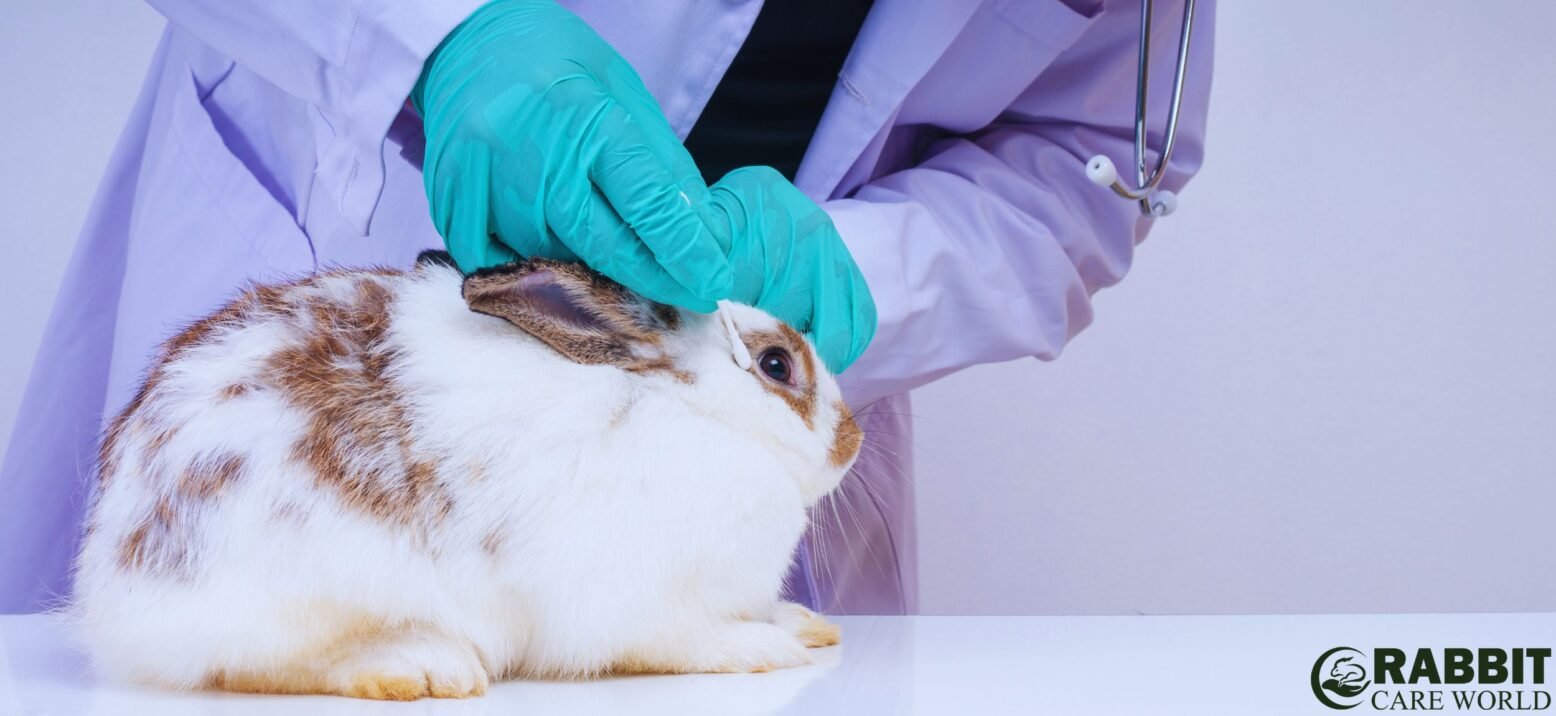
While vaccines are essential for rabbits, some owners explore alternatives to vaccination. These methods can help in maintaining a healthy environment and preventing diseases. Let’s dive into some effective alternatives that can support your rabbit’s health.
Preventative Care
Preventative care is crucial for keeping rabbits healthy. Regular check-ups with a vet can identify potential issues early. Here are some key practices:
- Regular Health Checks: Ensure your rabbit sees a vet at least once a year.
- Balanced Diet: Feed your rabbit high-quality hay, fresh vegetables, and a small amount of pellets.
- Grooming: Brush your rabbit regularly to prevent hairballs and matting.
- Exercise: Provide ample space and opportunities for your rabbit to exercise.
These practices can significantly reduce the risk of illness and promote overall health.
Environmental Controls
Creating a safe and clean living environment is another effective way to protect your rabbit’s health. Consider these environmental controls:
| Control | Benefit |
|---|---|
| Clean Living Space | Prevents the spread of bacteria and viruses. |
| Proper Ventilation | Reduces respiratory issues by ensuring fresh air. |
| Safe Enclosure | Protects your rabbit from predators and harmful elements. |
| Regular Disinfection | Minimizes the risk of disease transmission. |
Maintaining a clean and safe environment is critical for your rabbit’s well-being. These controls can greatly reduce the risk of infections and promote a healthier life for your pet.
Community And Support
Raising a healthy rabbit involves more than just good food and care. Rabbit vaccines play a crucial role. Getting support and advice from fellow rabbit owners can be invaluable. Whether online or in local groups, finding a community can help you make the best choices for your pet.
Online Resources
The internet is full of valuable resources for rabbit owners. Websites, forums, and social media groups offer advice on vaccines. These platforms allow you to ask questions and read about other people’s experiences.
- Websites: Find reliable sites with vet-approved information.
- Forums: Engage in discussions and ask for advice.
- Social Media: Join groups dedicated to rabbit care.
These resources offer support and keep you updated on the latest vaccine news. You can learn what works best for your rabbit and what to avoid.
Local Rabbit Groups
Joining a local rabbit group can offer personal support. Meeting face-to-face with other rabbit owners can be reassuring. You can share experiences and get recommendations on vaccines and care.
| Benefit | Details |
|---|---|
| Personal Advice | Get tailored tips from experienced owners. |
| Vaccine Clinics | Learn about local vaccine clinics and events. |
| Networking | Build a support network in your community. |
Local groups often organize events, where you can learn more about rabbit vaccines. These gatherings are great for getting first-hand advice and building connections.
Frequently Asked Questions
Do Rabbits Need Vaccines?
Yes, rabbits need vaccines to protect them from diseases. Myxomatosis and Rabbit Hemorrhagic Disease (RHD) are common. Vaccination is crucial for their health.
What Vaccines Do Rabbits Need?
Rabbits typically need vaccines for Myxomatosis and Rabbit Hemorrhagic Disease (RHD). These diseases are highly contagious and often fatal.
How Often Should Rabbits Be Vaccinated?
Rabbits should be vaccinated annually. Regular vaccinations ensure they stay protected against common diseases like Myxomatosis and RHD.
Are Rabbit Vaccines Safe?
Yes, rabbit vaccines are safe. They are tested and approved by veterinarians. Side effects are rare.
Conclusion For Do Rabbits Need Vaccines
Vaccines play a vital role in keeping rabbits healthy. They help prevent serious diseases. Regular vet visits ensure your rabbit gets needed vaccines. Vaccination boosts your rabbit’s immune system. Healthy rabbits lead longer, happier lives. Always consult your vet for the best advice.
Protect your rabbit with timely vaccines. Investing in their health now pays off later. Ensure your furry friend stays safe and healthy.
Check Our New Blog


